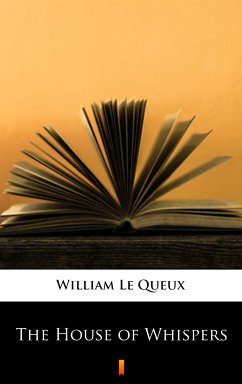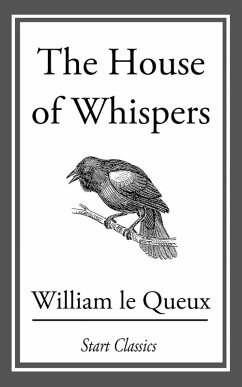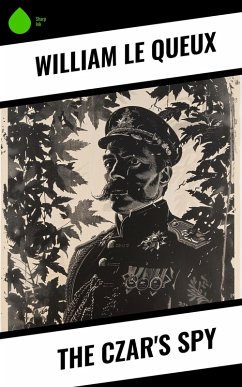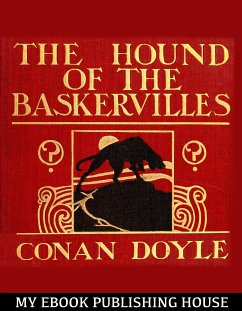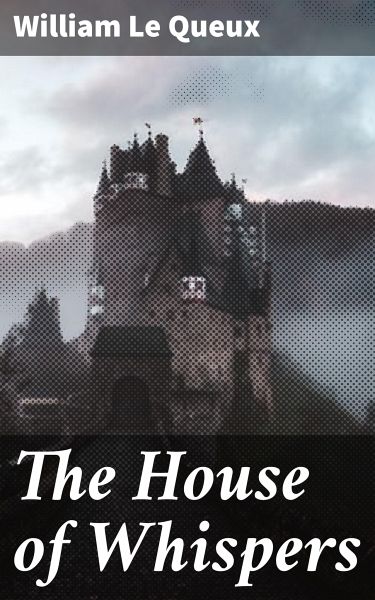
The House of Whispers (eBook, ePUB)
Enriched edition. Secrets and Intrigue in a Grand Manor: A Gothic Mystery Tale
Kommentar: Whitaker, Trevor / Redaktion: Good Press
Versandkostenfrei!
Sofort per Download lieferbar
0,49 €
inkl. MwSt.
Weitere Ausgaben:

PAYBACK Punkte
0 °P sammeln!
William Le Queux's "The House of Whispers" is a quintessential example of early 20th-century suspense fiction, masterfully blending elements of mystery and the supernatural within a richly atmospheric narrative. Set against the backdrop of an enigmatic manor in the English countryside, the novel unfolds through a series of haunting events that challenge the boundaries of reality and perception. Le Queux employs a vivid and immersive literary style that encapsulates the Victorian fascination with the occult, drawing on gothic tropes and psychological tension to engage readers fully in this intr...
William Le Queux's "The House of Whispers" is a quintessential example of early 20th-century suspense fiction, masterfully blending elements of mystery and the supernatural within a richly atmospheric narrative. Set against the backdrop of an enigmatic manor in the English countryside, the novel unfolds through a series of haunting events that challenge the boundaries of reality and perception. Le Queux employs a vivid and immersive literary style that encapsulates the Victorian fascination with the occult, drawing on gothic tropes and psychological tension to engage readers fully in this intricate tale of obsession and retribution. Le Queux, a prolific writer and notable figure in British literature, was profoundly influenced by his experiences as a journalist and his interest in espionage and the paranormal. His imaginative outputs often reflect the anxieties of his time, particularly regarding national security and societal upheaval. "The House of Whispers" showcases his ability to weave complex narratives that delve into the human psyche, suggesting a deep understanding of the fears that lurk within us all. His previous works, steeped in intrigue and adventure, undoubtedly informed his approach to this haunting narrative. For readers fascinated by early 20th-century literature, gothic fiction, or the intricacies of psychological suspense, "The House of Whispers" is an essential addition to their collection. Its rich prose and layered storytelling not only captivate but also provoke thought, making it a compelling read for fans of both classic and contemporary mystery genres. In this enriched edition, we have carefully created added value for your reading experience: - A succinct Introduction situates the work's timeless appeal and themes. - The Synopsis outlines the central plot, highlighting key developments without spoiling critical twists. - A detailed Historical Context immerses you in the era's events and influences that shaped the writing. - A thorough Analysis dissects symbols, motifs, and character arcs to unearth underlying meanings. - Reflection questions prompt you to engage personally with the work's messages, connecting them to modern life. - Hand-picked Memorable Quotes shine a spotlight on moments of literary brilliance. - Interactive footnotes clarify unusual references, historical allusions, and archaic phrases for an effortless, more informed read.
Dieser Download kann aus rechtlichen Gründen nur mit Rechnungsadresse in A, B, BG, CY, CZ, D, DK, EW, E, FIN, F, GR, H, IRL, I, LT, L, LR, M, NL, PL, P, R, S, SLO, SK ausgeliefert werden.




